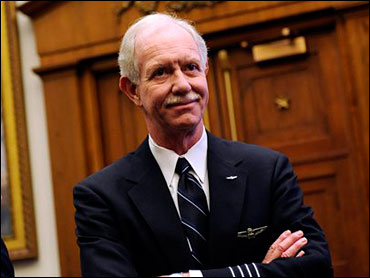Avoid letting fear and greed drive your decision-making
If you are like me, you have experienced a lot of emotions here in 2020. It has been wild and uncertain, and we have more to go. It is commonly said that fear and greed drive the stock market, but you should avoid letting fear and greed drive your decision-making. Up and down goes the market, selling from fear, buying with greed. This led famous investor Warrant Buffett, a contrarian to the investing mob, to say, “Be fearful when others are greedy and greedy when others are fearful.”
Being stuck at home through the COVID crisis in an election year with sensationalized news is not a recipe for financial progress. It can be toxic to wise decision-making but overcome by those who take a stand.
On January 15, 2009, US Airways Flight 1549, piloted by Captain Chesley ‘Sully” Sullenberger, made a successful emergency landing in the frigid Hudson River after bird strikes took out both engines. You can listen to cockpit audio here. What is amazing about Captain Sullenberger’s demeanor in communicating with air traffic control is his sense of calm, focus and objectivity. What could have easily been a time of panic, he led with composure. Passenger, Emma Sophina said about Captain Sullenberger, “He is just calm, absolute calm. I’ve never met anybody like him in my life.”
With the election fast approaching, the news is only going to intensify. Most of it will feature dramatized politics at the expense of viewers. People will make critical mistakes with their money and their futures. While this season might make you feel like Michael Scott during a fire drill, instead choose to be focused, composed and objective like Captain Sully.
Here are 4 keys to avoid letting fear and greed drive your decision-making:
1. Avoid extremes.
The stock market experienced the fastest bear market in history in February and March of this year, down 20% in 20 days, and down 35% overall from peak to trough in just over a month. The unemployment rate peaked at 14.7% in April (Bureau of Labor Statistics). These are extreme statistics, yet the response has not generally needed to be extreme. Rather, discipline was needed. At the time of this writing, the stock market has largely recovered. Unemployment is lower (albeit still higher than prior to COVID), further solved when businesses can re-open. What will happen tomorrow, I do not know. If you are concerned with the future, consider taking some risk off the table, but understand the limitations of knowing what will transpire tomorrow. Responding in extremes can turn worries into nightmares.
2. Think.
In a year marked with confusion, it has paradoxically been a year of exposure for corrupt, self-serving agendas. Don’t take everything you watch or read at face value. Neither would I advocate support to a tribalistic response without thinking. Rather, take a humble approach. Thinking before reacting helps guide wise decision-making.
3. Be patient.
I wrote about how the hapless Cleveland Browns fired Bill Belichick, one of the greatest coaches in NFL history. Yes, mistakes are made all the time, and I’m not knocking that. The problem is that when I wrote this in 2016, the Browns had nine head coaches and 24 starting quarterbacks in the prior 16 years. (They have added to those numbers since.) Even in the National Football League, where the leash is short, developing consistent progress requires patience.
When it comes to financial management, most everyone nods in agreement at the notion of thinking long-term. The problem is that the here and now is where we live. People often make decisions for today based on the recent past. What has happened lately supersedes historical pattern, established principles, and even future projection. Operating that way creates a “chasing the tail” scenario. As markets, and economics cycle, you never quite catch up.
4. Spread your risk.
Morgan Housel, author of The Psychology of Money, stated in support of investment diversification that the drivers of returns, in a given year, “usually rely overwhelmingly on fewer than 10 companies.” Do you know which ones will drive the returns next year or the next ten years? I don’t. Invest broadly so you can own those companies of the next decade. If you are extra concerned with the near-term happenings of the country, the economy, real estate, tax rates, your job, the stock market – whatever it may be – spread your risk. An all-or-nothing approach can backfire enormously. As financial author, Nick Murray, has said, “Diversification is the conscious choice not to make a killing, in return for the blessing of never getting killed.”
Avoid letting fear and greed drive your decision-making. Many people will be swayed by the emotion of the times. Instead, be focused and composed. Avoid extremes. Think. Be patient. Spread your risk.
Anthony Saffer
Principled Prosperity is focused on equipping those who choose to ignore the noise. The world of finances can be complex, but basic truths have persevered over time, across cultures, and in spite of changing circumstances. Anthony Saffer writes on his experiences in personally working with families to coordinate principled financial and investment solutions.
1 Comment
Comments are closed.


[…] More Reading: 4 Keys: Avoid letting fear and greed drive your decision-making […]